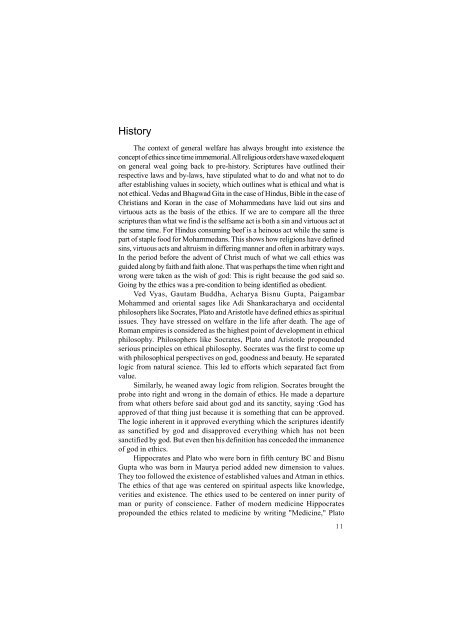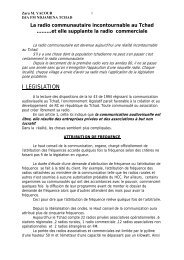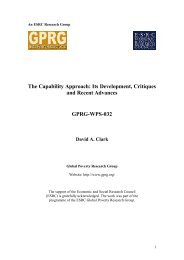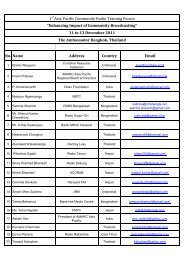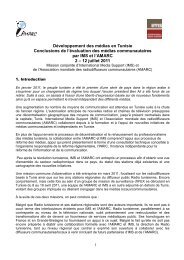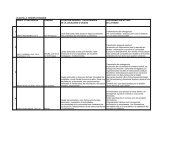Community Radio Pledge (pdf) - amarc
Community Radio Pledge (pdf) - amarc
Community Radio Pledge (pdf) - amarc
- No tags were found...
Create successful ePaper yourself
Turn your PDF publications into a flip-book with our unique Google optimized e-Paper software.
HistoryThe context of general welfare has always brought into existence theconcept of ethics since time immemorial. All religious orders have waxed eloquenton general weal going back to pre-history. Scriptures have outlined theirrespective laws and by-laws, have stipulated what to do and what not to doafter establishing values in society, which outlines what is ethical and what isnot ethical. Vedas and Bhagwad Gita in the case of Hindus, Bible in the case ofChristians and Koran in the case of Mohammedans have laid out sins andvirtuous acts as the basis of the ethics. If we are to compare all the threescriptures than what we find is the selfsame act is both a sin and virtuous act atthe same time. For Hindus consuming beef is a heinous act while the same ispart of staple food for Mohammedans. This shows how religions have definedsins, virtuous acts and altruism in differing manner and often in arbitrary ways.In the period before the advent of Christ much of what we call ethics wasguided along by faith and faith alone. That was perhaps the time when right andwrong were taken as the wish of god: This is right because the god said so.Going by the ethics was a pre-condition to being identified as obedient.Ved Vyas, Gautam Buddha, Acharya Bisnu Gupta, PaigambarMohammed and oriental sages like Adi Shankaracharya and occidentalphilosophers like Socrates, Plato and Aristotle have defined ethics as spiritualissues. They have stressed on welfare in the life after death. The age ofRoman empires is considered as the highest point of development in ethicalphilosophy. Philosophers like Socrates, Plato and Aristotle propoundedserious principles on ethical philosophy. Socrates was the first to come upwith philosophical perspectives on god, goodness and beauty. He separatedlogic from natural science. This led to efforts which separated fact fromvalue.Similarly, he weaned away logic from religion. Socrates brought theprobe into right and wrong in the domain of ethics. He made a departurefrom what others before said about god and its sanctity, saying :God hasapproved of that thing just because it is something that can be approved.The logic inherent in it approved everything which the scriptures identifyas sanctified by god and disapproved everything which has not beensanctified by god. But even then his definition has conceded the immanenceof god in ethics.Hippocrates and Plato who were born in fifth century BC and BisnuGupta who was born in Maurya period added new dimension to values.They too followed the existence of established values and Atman in ethics.The ethics of that age was centered on spiritual aspects like knowledge,verities and existence. The ethics used to be centered on inner purity ofman or purity of conscience. Father of modern medicine Hippocratespropounded the ethics related to medicine by writing "Medicine," Plato11


